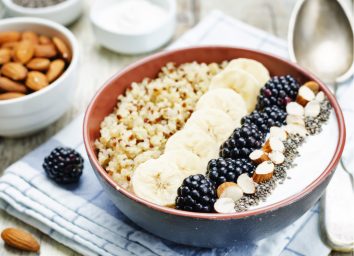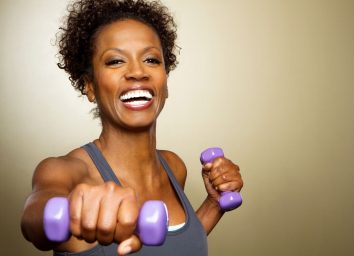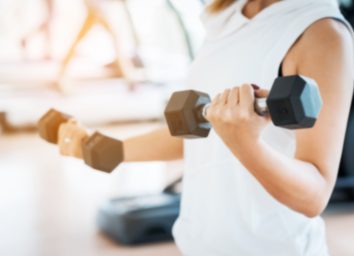The Best Breakfast Recipes for Stronger Muscles, Says Dietitian
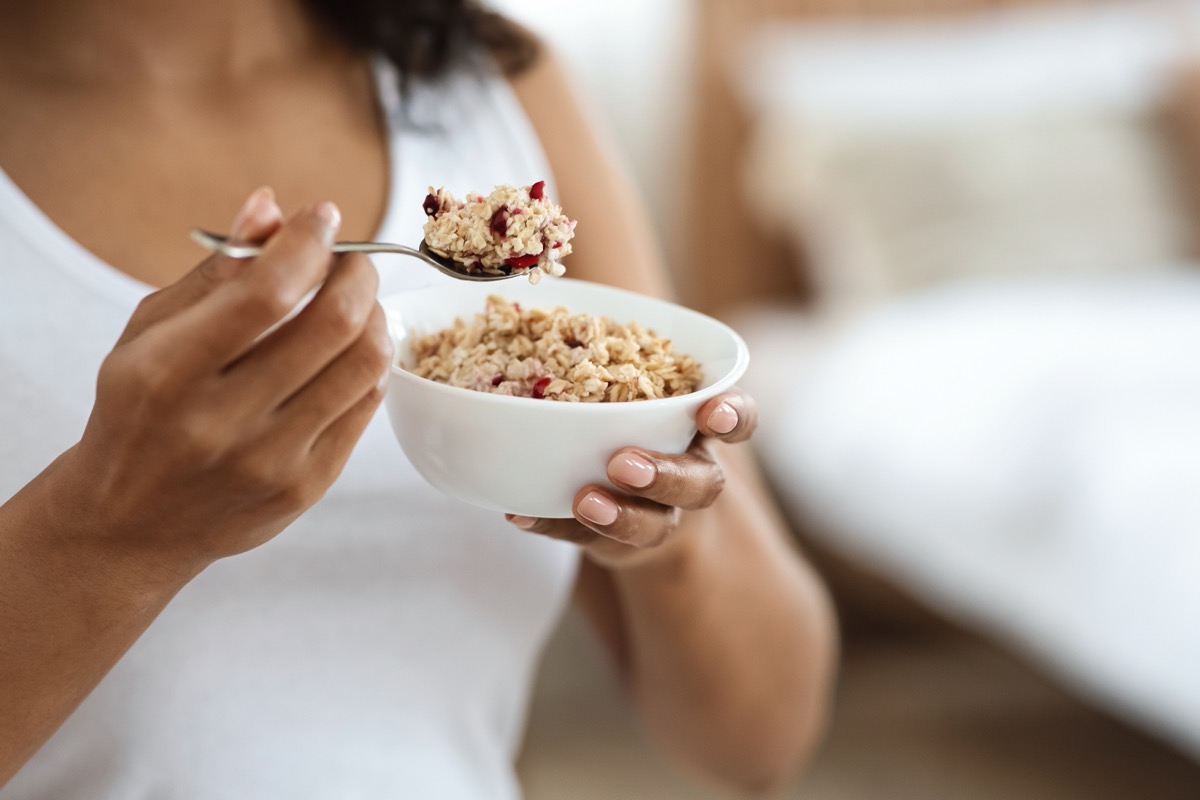
When it comes to building muscle, there are a few cornerstones that must be present. First, your muscle will only grow if it is being challenged to do so, which means regular exercise is necessary.
Adequate rest is also essential for growing muscle. If your muscles are overworked and under-rested, that can slow progress toward your muscle gain goals, and even make injury more likely.
Nutrition is the last piece of the puzzle when building muscle. Eating adequate protein and total calories at the right time is essential in the muscle-building process, and there are a few other nutrients that play important roles, too.
Building stronger muscles takes effort and attention to nutrition. Using these simple and tasty recipes can get your progress started, and help you get the most out of each training session. Remember to enjoy a source of protein and carbs within 30 minutes of each workout, and pack fruits and veggies into your meal for added vitamins, minerals, fiber, and antioxidants.
Here are the best breakfast options for building stronger muscles. Then, for more healthy breakfast tips, here are the 5 Breakfast Combinations to Help You Live Longer.
Vegetarian Black Bean Omelet
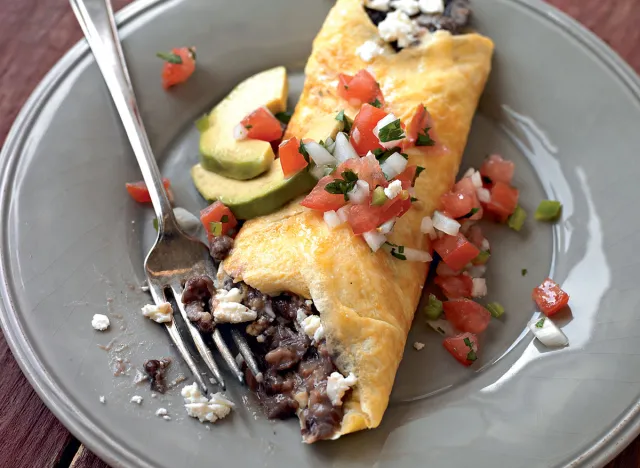
In order to build muscle, you must eat enough protein and essential amino acids. One egg provides about 6 to 8 grams of protein, depending on the size, making eggs a rich source of this muscle-building nutrient. One of the other benefits of having eggs at breakfast is they cook quickly, and they are versatile and pair well with so many other flavors.
When combined with black beans in this recipe, you end up with a well-rounded breakfast that contains protein, fat, carb, and fiber, among many other essential vitamins and minerals. Protein should be present in each of your meals, but for those who exercise first thing in the morning, a protein-rich breakfast within 30 minutes of finishing your workout is especially helpful in recovering and building muscle.
Get our recipe for Vegetarian Black Bean Omelet.
Light and Fluffy Banana Pancakes
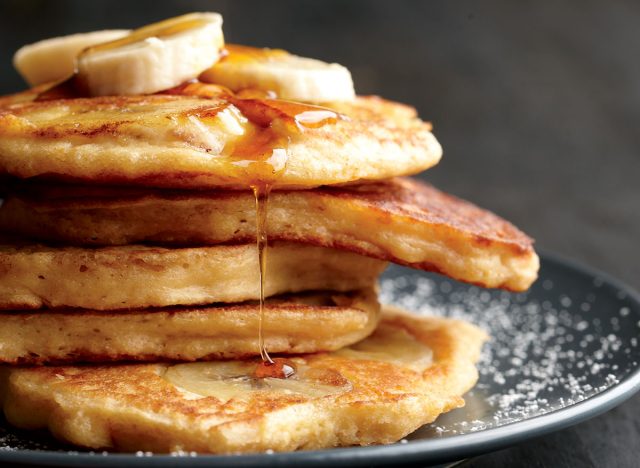
Another protein-packed breakfast option, this recipe will definitely appeal to those with a sweet tooth. While protein is the most important nutrient in repairing and rebuilding muscle, especially after exercise, carbohydrate is essential too.
When you exercise, especially cardio-style training, your body uses carbohydrates as your main source of fuel. Consuming adequate carbs throughout the day helps fuel your workouts and will allow you to get more out of each training session.
When your carbohydrate comes from quality ingredients, like bananas and whole wheat flour, you get the added bonus of fiber and a slew of micronutrients that support everything from your immune system to muscle contractions and fluid balance.
To incorporate some healthy fats into this meal, try topping your pancakes with nut butter or chopped nuts. These ingredients can also help fight inflammation that naturally occurs during exercise.
Get our recipe for Light and Fluffy Banana Pancakes.
Easy Breakfast Hash with Sweet Potato and Chicken Sausage
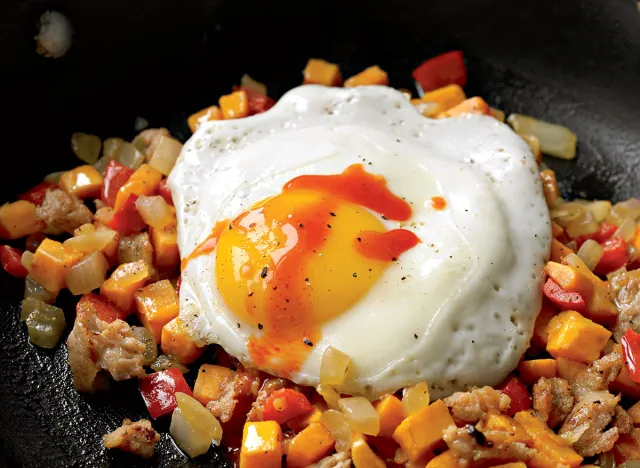
While eggs are considered to be a complete protein because they contain all nine essential amino acids, getting additional protein and amino acids from other sources, like chicken sausage, ensures you are consuming adequate amounts of these essential nutrients. The egg and chicken sausage in this recipe provide ample protein and are complemented by the carbohydrate and fiber in the sweet potato.
Additionally, sweet potatoes are a source of potassium, a micronutrient that aids in muscle contractions and is lost through sweat. When doing intense sweat-inducing exercise, especially in hot and humid climates, you may lose enough potassium to impact the functioning of your muscle, so it is essential to choose potassium-rich foods to replenish what may be lost during exercise. While potassium on its own won’t build stronger muscles, having adequate amounts of this electrolyte in your system can help with proper muscle firing during exercise, helping you reach your full potential each training session.
Get our recipe for Easy Breakfast Hash with Sweet Potato and Chicken Sausage.
Greek Yogurt with Pineapple, Kiwi, Mango, and Ginger Syrup
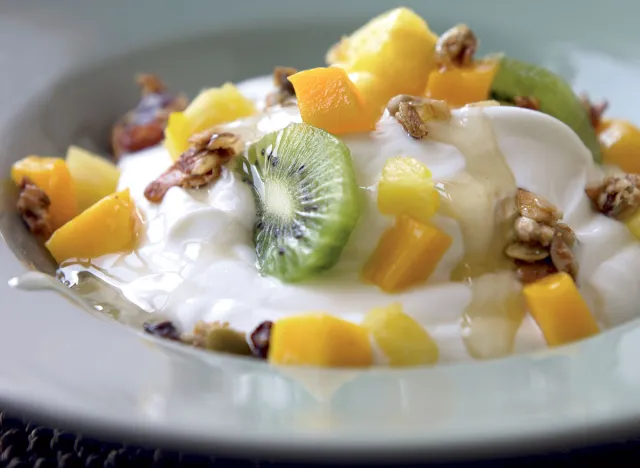
This recipe is packed with protein from Greek yogurt, carbohydrate from fruit and granola, and antioxidants from the variety of fruit included. For those watching their sugar intake closely, simply reduce the amount of homemade ginger syrup you drizzle over your yogurt.
Similar to potassium, antioxidants on their own won’t lead to stronger muscles, but they still play an important role in the muscle-building process. Exercise can cause oxidative stress in your body, and while this is a normal physiological process, too much can hamper your muscle-growth goals. The antioxidants found in fruit and other foods, like vegetables and nuts, help to buffer the oxidate stress and free radicals produced by exercise, which can enhance your muscle recovery between workouts. Aim for at least 5 cups total of fruits and veggies each day to help meet your antioxidant and fiber needs.
Get our recipe for Greek Yogurt with Pineapple, Kiwi, Mango, and Ginger Syrup.
Healthy Oatmeal with Peanut Butter and Banana
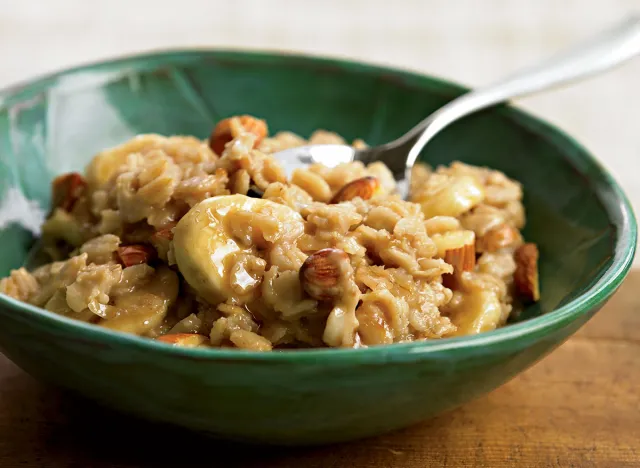
For those who follow a plant-based diet and prefer to limit their intake of animal products, this oatmeal recipe is a great way to get the protein your muscle needs to be packed into a vegan meal. Nuts and seeds, including nut butter, contain about 8 grams of protein per serving. While a serving of peanut butter on its own isn’t quite enough to satisfy muscle recovery needs, when combined with the almonds and oats in this recipe, you can get enough protein to start the recovery process.
Ten to 20 grams of protein within 30 minutes of finishing a workout is a good goal to aid in muscle recovery. While this recipe provides the low end of that range, you can easily top your oatmeal with additional peanut butter or almonds, or add a protein source like veggie sausage, egg, or top with Greek yogurt to up your protein intake.
Get our recipe for Healthy Oatmeal with Peanut Butter and Banana.

